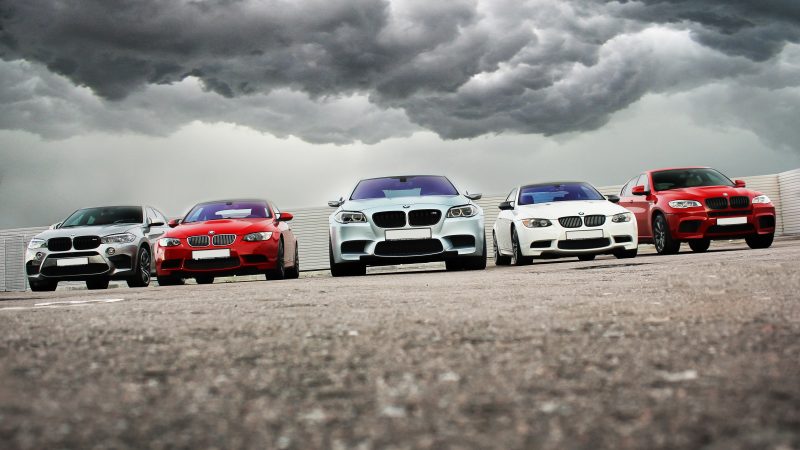[ad_1]
Electro fuels made from green energy sources may play a role in decarbonising road transport in years to come, complementing other clean propulsion technologies such as electric power, according to German auto manufacturer BMW.
As carmakers around the world convert massively to electric mobility, BMW is among the few still investing heavily in the internal combustion engine as part of a “technology neutral” approach to zero-emission vehicles.
“To be technology open includes e-fuels,” Peter Lehnert, vice president of research and new technologies with the BMW Group, told EURACTIV.
“However, I think there’s a lot of research to do to scale it up to the potential where it plays a major role in the whole energy mix,” he added.
“I think it’s always good to have different opportunities. We invest heavily in the combustion engine, as there might be chances for them in the future. For urban mobility I’m sure it will be electric,” he said.
Lehnert was speaking from Lisbon, which is hosting the Transport Research Arena (TRA), the largest European research and technology conference on transport and mobility.
Electric fuels
E-fuels are derived from hydrogen through electrolysis, in which an electric current is used to separate hydrogen and oxygen molecules. If CO2 is added, the fuel becomes compatible with current-generation combustion engines.
As CO2 is captured for production and then released when the fuel is combusted, the net level of carbon in the atmosphere is unchanged, making the fuel carbon neutral.
To be classed as green, the energy-intensive e-fuel production process must be made using only renewable energy sources, such as solar and wind power.
“In the end, e-fuels need to be produced by green power, otherwise it doesn’t match our targets under the European Green Deal,” said Lehnert.
In looking to the future of road transport, Lehnert said it would be a mistake to choose one technology to the exclusion of others.
“We mentioned hydrogen, it might be e-fuels as well. I think it’s not a question of focusing only on one technology, this is something that is really high risk,” he added.
Lehnert said that the BMW Group, which represents the BMW, Mini, and Rolls-Royce brands, is keeping its mind open regarding energy sources that can cut vehicle emissions.
“Investigating e-fuels is definitely worth it, however we have to look at the balance of the right energy mix,” he said.
BMW has invested in producing hydrogen fuel cell vehicles, breaking from most competitors’ more narrow focus on electric vehicles.
The ability to charge a hydrogen-powered vehicle quickly is a “real advantage” compared to electric vehicles, said Lehnert.
“Especially for long distances, hydrogen is something which is appropriate,” he added.
Asked about the EU’s recently released Euro 7 proposal, which further tightens pollution limits for vehicles, Lehnert said that it’s “good to have a common target” and that the company’s track record with previous standards shows it is “target driven”.
“We take these targets and we are really convinced that we will achieve it,” he said.
Lehnert spoke to the press Tuesday (15 November) at the Transport Research Arena conference in Lisbon. The event, which is supported by BMW, gathers researchers, policymakers, and industry to discuss innovation and sustainability in the transport sector.
The role of e-fuels in the road transport sector has proven controversial, with green campaigners criticising support for e-fuels as a way to prolong the life of the internal combustion engine.
Instead, they want to see a faster switch to electric vehicles, which they say offer the cleanest means of driving.
Under recently agreed EU legislation, the sale of polluting vehicles would be banned from 2035 in the bloc, a move which many say spells the end of the internal combustion engine.
However, a non-binding recital clause included in the legislative text obliges the European Commission to conduct a study in 2026 on the possibility of using CO2-neutral fuels, such as e-fuels, to achieve green targets for the road sector.
If the Commission finds that e-fuels are in line with Europe’s climate goals, some believe this will offer a reprieve for the internal combustion engine.
Proponents of e-fuels further position them as a means to decarbonise the current fleet of internal combustion engine vehicles, which will remain on Europe’s roads for decades to come, regardless of rules on their use beyond 2035.
[Edited by Frédéric Simon]
[ad_2]
Source link



